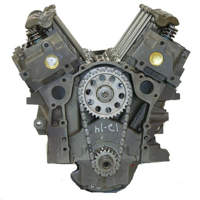What Makes a Car Engine Run Smoothly: Top Tips for Ideal Care
The smooth procedure of an automobile engine is basic to both performance and long life, making optimal care a necessary responsibility for vehicle proprietors. What particular actions should you focus on to guarantee your engine stays in peak condition?
Routine Oil Adjustments
Among one of the most vital elements of car upkeep is ensuring your engine receives normal oil adjustments. Engine oil lubes internal elements, decreases friction, and aids maintain optimum operating temperature levels. Gradually, oil deteriorates because of heat, impurities, and the all-natural byproducts of burning, causing minimized efficiency and potential engine damage.
Many manufacturers advise altering the oil every 5,000 to 7,500 miles, but this period can vary based on driving problems and oil type. Synthetic oils may allow for longer periods between adjustments. Normal oil modifications not only boost engine performance yet likewise enhance gas effectiveness, as clean oil promotes smoother procedure.
Disregarding oil modifications can result in sludge build-up, which impairs blood circulation and can result in extreme engine issues. It is essential to check oil degrees on a regular basis and keep an eye on for any type of uncommon modifications in color or uniformity, which could show contamination or deterioration.

Maintaining Coolant Levels
Keeping appropriate coolant levels is necessary for protecting against engine overheating and ensuring ideal efficiency. The coolant, usually a blend of water and antifreeze, flows through the engine, absorbing heat and preventing thermal tension. Inadequate coolant can cause boosted engine temperature levels, which might trigger serious damage and even overall engine failure.
To maintain optimal coolant degrees, routinely examine the coolant storage tank, typically located in the engine bay. Ensure the coolant is loaded to the advised mark, as shown in your automobile's owner handbook. It is recommended to check the levels at the very least as soon as a month or before lengthy journeys, particularly during severe climate condition.
If you discover that the coolant degree is continually reduced, there may be a leak in the air conditioning system, which must be dealt with quickly to prevent more issues. 2.2 ford ranger engine. Furthermore, flushing the coolant system every a couple of years can aid remove any kind of collected debris and make certain effective heat exchange
Monitoring Air Filters
It is recommended to inspect the air filter every 12,000 to 15,000 miles, or extra frequently if driving in dirty or damaging problems. A simple visual evaluation can commonly disclose whether the filter is unclean or harmed. If the filter shows up blemished or has noticeable dirt build-up, it ought to be changed promptly.
Utilizing a top notch air filter designed for your particular automobile version can further enhance engine performance. Furthermore, some automobiles might gain from recyclable filters that can be cleansed and re-installed, providing a affordable and ecologically friendly alternative.
Inspecting Spark Plugs
Ignition system are important components of a vehicle's click for more info ignition system, directly influencing engine efficiency and effectiveness. They produce the spark that fires up the air-fuel mixture in the burning chamber, promoting the engine's power generation. Normal assessment of trigger plugs is crucial for keeping ideal engine function and preventing possible problems.
During an evaluation, look for indicators of wear or damages, such as fractures, carbon buildup, or too much gap widening. A healthy trigger plug normally displays a light brown or tan shade. Dark residue or oil deposits can indicate inappropriate combustion, while a raw or white look might suggest getting too hot. Both conditions call for prompt attention to stop further engine damage.
It's advisable to check spark plugs every 30,000 miles, the original source or as advised in your automobile's proprietor handbook. In addition, think about changing them according to the manufacturer's standards, as worn or old ignition system can result in misfires, lowered fuel effectiveness, and enhanced exhausts.
Monitoring Tire Stress
Under-inflated tires can lead to reduced gas performance, raised tire wear, and endangered handling. Regular monitoring of tire pressure is important for optimum lorry procedure.
Tire stress should be checked at the very least once a month and before long trips. Use a reputable tire pressure gauge to measure the pressure when the tires are chilly, preferably before the car has been driven for at the very least three hours. Refer to the lorry's proprietor guidebook or the placard situated on the vehicle driver's side door additional resources jamb for the supplier's advised pressure levels.
It is essential to note that tire pressure can fluctuate with changes in temperature; a decline of 10 ° F can cause a 1-2 psi decline in pressure. Additionally, aesthetically evaluate tires for any kind of indications of wear or damage throughout your surveillance routine. Maintaining proper tire stress not just enhances lorry security but additionally boosts fuel effectiveness and extends tire life, eventually adding to a smoother engine efficiency.
Final Thought
In conclusion, keeping a car engine's smooth procedure requires attentive interest to numerous vital elements. Regular oil modifications, proper coolant degrees, clean air filters, properly maintained stimulate plugs, and optimum tire pressure jointly add to boosted performance and long life. Complying with these maintenance methods not only enhances gas effectiveness yet also advertises a safer driving experience. Eventually, a proactive technique to engine care is crucial for guaranteeing reliability and capability over time. 2.2 ford ranger engine.
One of the most essential elements of auto maintenance is ensuring your engine obtains regular oil changes. Engine oil lubricates interior parts, reduces friction, and aids preserve ideal operating temperature levels. Normal oil adjustments not just improve engine performance but also improve gas effectiveness, as tidy oil advertises smoother procedure.
Not enough coolant can lead to raised engine temperatures, which might cause serious damages or also overall engine failing.
